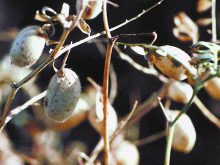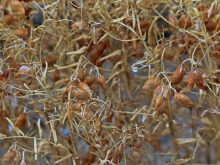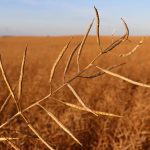A new wave of genetically modified crops was approved for release in Canada in 2005.
Roundup Ready alfalfa, Roundup Ready sugar beets and Herculex RW corn were all approved by Health Canada and the Canadian Food Inspection Agency for food, feed and environmental release.
The GM alfalfa and GM sugar beets represent a departure for the biotech industry, which until recently has concentrated on commercializing the technology in more widely grown crops such as corn, soybeans, cotton and canola.
“They’re searching for new crops to put this into because there is only so far you can go with the existing crops,” said Terry Pugh, executive secretary for the National Farmers Union.
Read Also

Message to provincial agriculture ministers: focus on international trade
International trade stakeholders said securing markets in the face of increasing protectionism should be the key priority for Canada’s agriculture ministers.
He said farmers aren’t demanding the technology; it is being foisted upon them by the owner of the genes.
Trish Jordan, spokesperson for Monsanto Canada, pointed out that the GM sugar beet project was a producer-driven initiative.
U.S. growers approached the sugar beet developer KWS Saat AG, which in turn approached Monsanto about licensing its technology to create a line of glyphosate tolerant sugar beets.
As part of the licensing agreement Monsanto helped the company work its way through a maze of government regulations. However, it will be up to KWS to commercialize the product.
“It’s not really our product to launch,” Jordan said.
That is a typical example of how the Roundup resistance technology is finding its way into smaller scale crops, leaving Monsanto to focus its resources on developing new GM lines of soybeans, cotton, corn and canola.
Pugh considers it a disturbing trend.
“The more crops that these genes are inserted into certainly increases the spread of that gene into the environment,” he said.
Luther Markwart, vice-president of the American Sugar Beet Growers Association, is pleased Monsanto is expanding the availability of its technology.
“Weeds have always been one of our biggest problems in sugar beet production,” he said.
Growers in the United States are spending an average of $136 US per acre to control weeds, a figure that will drop significantly with the introduction of Roundup Ready sugar beets.
Instead of relying on multiple applications of herbicides and chemical cocktails to keep weeds in check, Markwart said growers will be able to control weeds in one or two passes.
“I think it has a bright future. It could be dominant but it will not happen overnight,” said Markwart.
Jordan said there are at least two years of varietal work to complete in the U.S. and Canada before Roundup Ready sugar beets will be available to growers.
Roundup Ready alfalfa is much closer to commercialization; a limited amount was grown on an identity preserved basis in the U.S. in 2005.
No varieties of GM alfalfa have been registered in Canada and as yet there are no plans to commercialize the crop in this country.
Herculex RW, a variety of corn developed by Dow AgroSciences LLC and Pioneer Hi-Bred International Inc., protects itself against rootworm infestations.
The trait will be available this year in Liberty Link hybrids sold by Mycogen Seeds and Pioneer.















